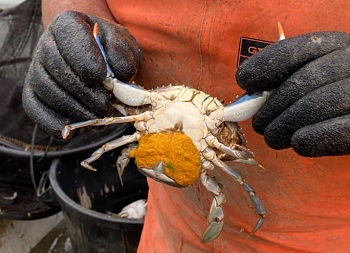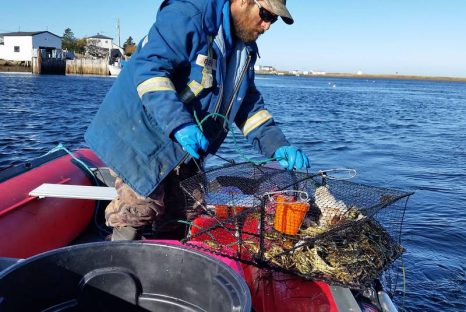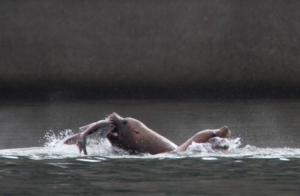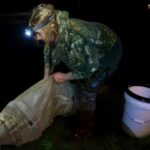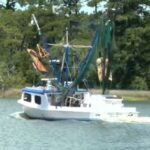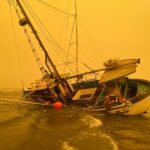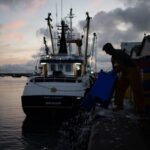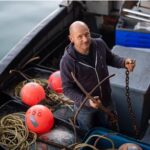Tag Archives: Mussels
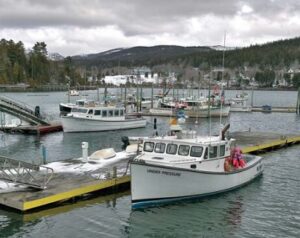
Keeping It Working – Maine’s working waterfronts
Maine’s harbors may seem quieter this time of year, but you might be surprised how much activity continues along our working waterfronts in the dead of winter. Marine terminals, ferries, mailboats, and fish-processing plants continue their daily operations. Shipyards are working on repair jobs put off during the busy summer and fall. The hardcore offshore lobstermen are still fishing, while others are rerigging for winter fisheries like scallops, mussels, urchins, and seaweed. Just what constitutes a working waterfront? In Maine, as in the rest of the country, the definition includes all-tide access, so that vessels don’t have to time their arrival and departure schedules strictly around the tide. >click to read< 17:26
Declining biotoxin levels – Some Down East shellfishing areas reopened
On Thursday, the Department of Marine Resources re-opened some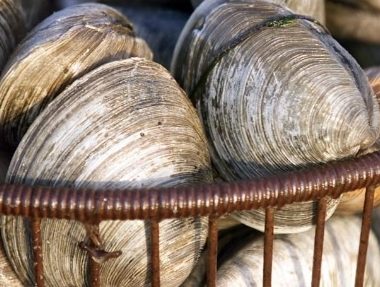 of the coastline between Calais and Cutler for the harvest of clams, mussels and carnivorous snails, and said clamming will be allowed on a portion of the coast between Isle Au Haut to Winter Harbor. Shellfish harvesting on much of the Down East coast remains restricted because of an algae bloom that produces a toxin that can cause amnesic shellfish poisoning, or ASP, in humans. It is unclear if the limited reopening Thursday means the bloom is clearing up or if harvesting bans will be removed in other areas soon. “We can’t speculate, but we continue to test shellfish and phytoplankton along the coast, both inside and outside the impacted areas, and will re-open areas as soon as test results allow,” said Jeff Nichols, a spokesman for the department of Marine Resources. Lifting the emergency restrictions was a relief to clammers who have been kept off the flats for the last two weeks. Read the story here 08:32
of the coastline between Calais and Cutler for the harvest of clams, mussels and carnivorous snails, and said clamming will be allowed on a portion of the coast between Isle Au Haut to Winter Harbor. Shellfish harvesting on much of the Down East coast remains restricted because of an algae bloom that produces a toxin that can cause amnesic shellfish poisoning, or ASP, in humans. It is unclear if the limited reopening Thursday means the bloom is clearing up or if harvesting bans will be removed in other areas soon. “We can’t speculate, but we continue to test shellfish and phytoplankton along the coast, both inside and outside the impacted areas, and will re-open areas as soon as test results allow,” said Jeff Nichols, a spokesman for the department of Marine Resources. Lifting the emergency restrictions was a relief to clammers who have been kept off the flats for the last two weeks. Read the story here 08:32
Toxic algae bloom closes Downeast Maine shellfish industry
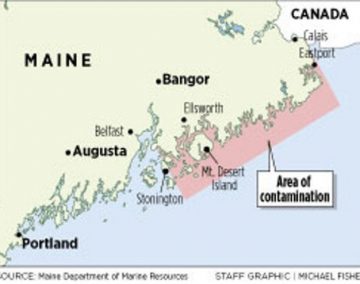 Last week, the Department of Marine Resources issued a recall of mussels, clams and quahogs caught in Downeast Maine after samples tested positive for domoic acid, a biotoxin that causes illness, memory loss, brain damage and possibly death in humans. At the same time, the state banned harvesting for mussels, clams, oysters and carnivorous snails on parts of a wide swath of coastline from Deer Isle to the Canadian border. “A closure for this toxin in Eastern Maine is unprecedented, that is not anything anyone has ever seen,” said Darcie Couture, a Brunswick marine scientist and former head of the state’s marine biotoxin program. “No one on this coast is that experienced with a domoic acid event,” Couture said. “I don’t think it is sinking in how serious this is.” Read the story here 23:07
Last week, the Department of Marine Resources issued a recall of mussels, clams and quahogs caught in Downeast Maine after samples tested positive for domoic acid, a biotoxin that causes illness, memory loss, brain damage and possibly death in humans. At the same time, the state banned harvesting for mussels, clams, oysters and carnivorous snails on parts of a wide swath of coastline from Deer Isle to the Canadian border. “A closure for this toxin in Eastern Maine is unprecedented, that is not anything anyone has ever seen,” said Darcie Couture, a Brunswick marine scientist and former head of the state’s marine biotoxin program. “No one on this coast is that experienced with a domoic acid event,” Couture said. “I don’t think it is sinking in how serious this is.” Read the story here 23:07
The Wild Blue Mussel is disappearing from the Gulf of Maine
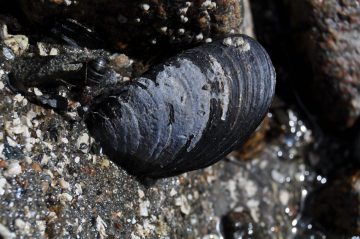 New England is running out of mussels. The Gulf of Maine’s once strong population of wild blue mussels is disappearing, scientists say. A study led by marine ecologists at the University of California at Irvine found the numbers along the gulf coastline have declined by more than 60 percent over the last 40 years. Once covering as much as two-thirds of the gulf’s intertidal zone, mussels now cover less than 15 percent. The Sorte study focused on 20 sites along the gulf, using historical data to compare today’s mussel populations to those of the past. She said the decline of mussels isn’t due to just one factor — warming ocean water, increases in human harvesting and the introduction of new predatory invasive species all appear to play a role. Read the story here 15:40
New England is running out of mussels. The Gulf of Maine’s once strong population of wild blue mussels is disappearing, scientists say. A study led by marine ecologists at the University of California at Irvine found the numbers along the gulf coastline have declined by more than 60 percent over the last 40 years. Once covering as much as two-thirds of the gulf’s intertidal zone, mussels now cover less than 15 percent. The Sorte study focused on 20 sites along the gulf, using historical data to compare today’s mussel populations to those of the past. She said the decline of mussels isn’t due to just one factor — warming ocean water, increases in human harvesting and the introduction of new predatory invasive species all appear to play a role. Read the story here 15:40






